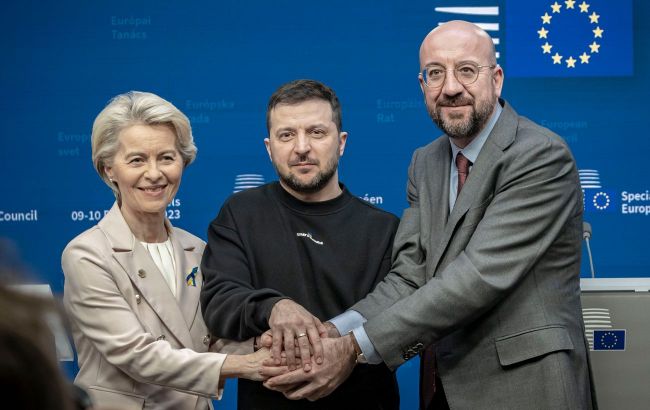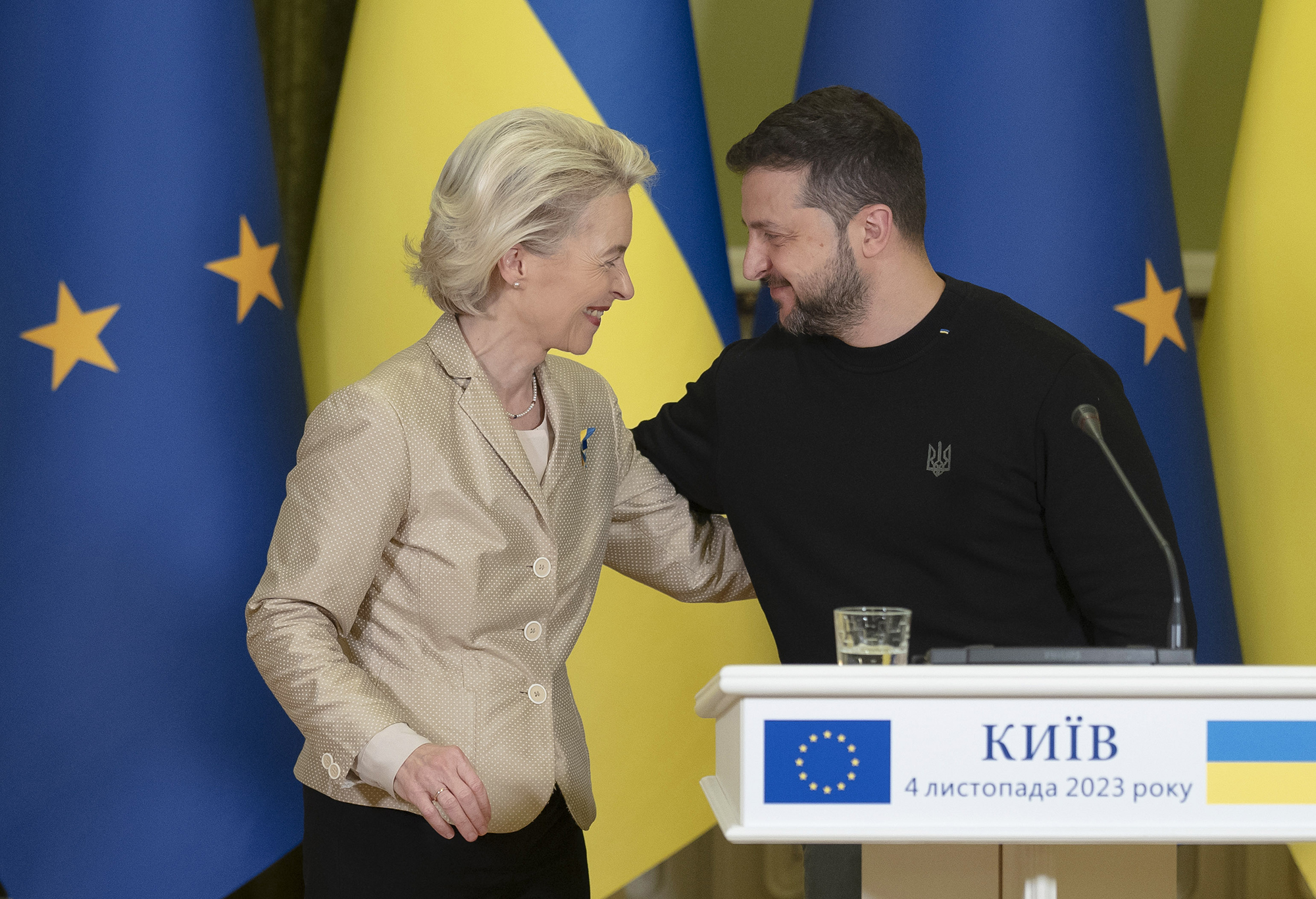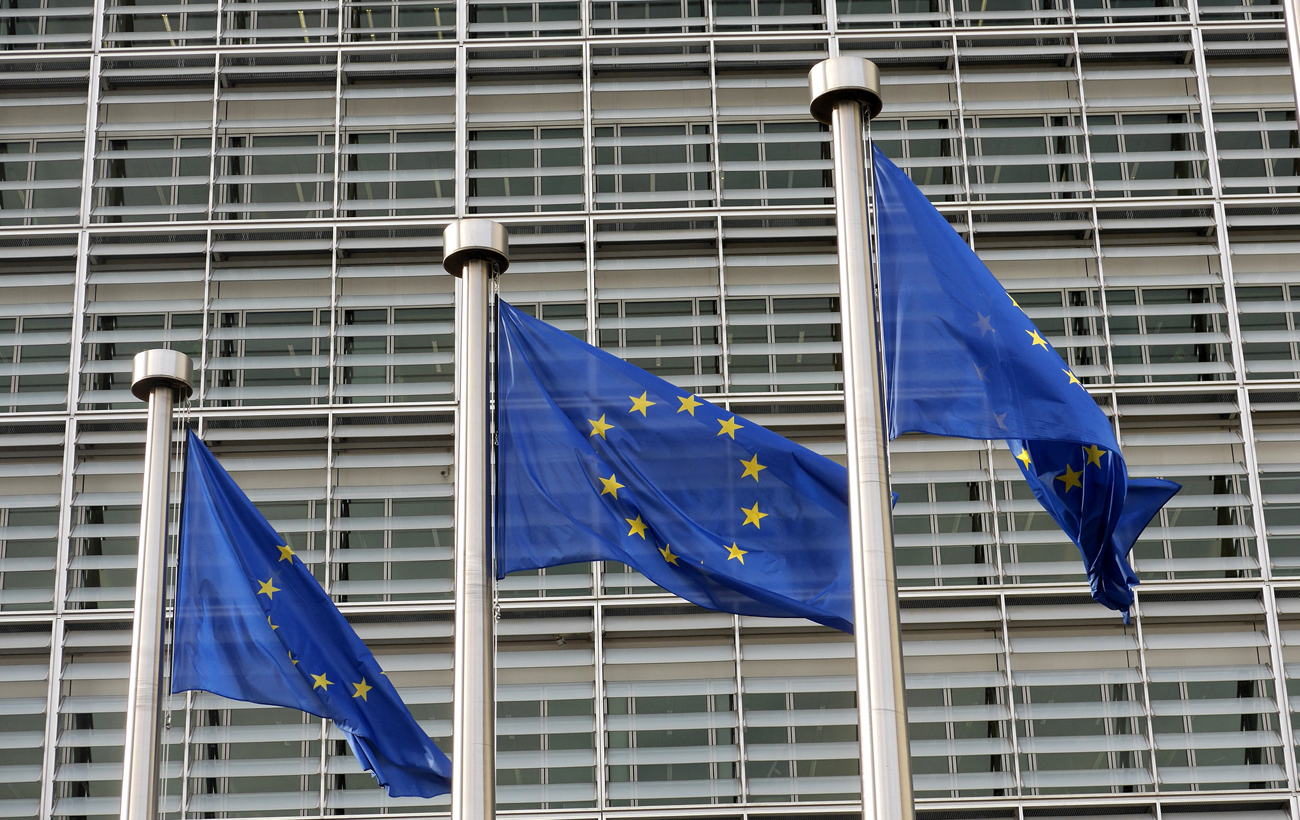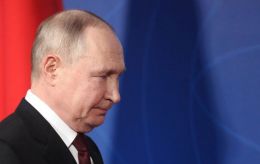When will Ukraine join the EU, and how will membership negotiations unfold
 Volodymyr Zelenskyy, Ursula von der Leyen, Charles Michel (Photo: Getty Images)
Volodymyr Zelenskyy, Ursula von der Leyen, Charles Michel (Photo: Getty Images)
Today, the European Commission is expected to give the green light to the start of negotiations on Ukraine's accession to the European Union. How these negotiations will proceed, what obstacles may arise on this path, and when Ukraine may eventually become a member of the EU are discussed in this article.
During the preparation of this material, publications from Politico and Radio Liberty, as well as statements by Ukrainian and European officials, were used.
Today, on November 8, the European Commission is set to evaluate Ukraine's progress in implementing seven recommendations it received last year along with the status of candidate country for EU accession. According to Radio Liberty, EU commissioners will acknowledge that Ukraine has fully met four of the criteria, while additional recommendations will be made for the remaining three criteria. However, according to many European media outlets, the overall conclusion will be positive, recommending that EU member states begin negotiations with Ukraine on EU accession.
As Vice Prime Minister for European and Euro-Atlantic Integration Olha Stefanishyna stated earlier, the report by the European Commission will highlight the "incredible progress" made by Ukraine, but the language used in the report will be cautious. Furthermore, this report will provide insight into the next steps on the path to EU membership.
Currently, there is no exact date for the start of negotiations with Ukraine, but according to Politico, the European Council is expected to decide by the end of this year. In mid-December, EU leaders are scheduled to convene for a summit where negotiations may be approved.
"The EC report is only the basis as the main decision on the start of negotiations will be made by the EU leaders in December," noted Stefanishyna.
How EU accession talks will proceed
To get the green light, Ukraine had to complete the homework from the European Commission, which consisted of seven points. Kyiv had to finalize the reform of the judiciary and the Constitutional Court, appoint new heads of the National Anti-Corruption Bureau (NABU) and the Specialized Anti-Corruption Prosecutor's Office (SACPO), implement laws on oligarchs, media, national minorities, and combat money laundering. The issue concerning oligarchs, by the way, was later removed from the agenda upon the recommendation of the EU.
The process of accession negotiations to the EU may take a considerable amount of time since Ukraine now needs to align its legislation with the European one, implementing the so-called Acquis communautaire, which comprises a set of rights and obligations of EU member states. This Acquis communautaire consists of 35 separate points, and progress in implementing each of them must be approved by all EU members.
These points include issues related to free trade, intellectual property rights, competition policy, fisheries, energy, taxation, justice, education, culture, financial control, and more.
In total, for Ukraine to become an EU member, it needs to implement approximately 30,000 different rules and standards of the EU. To expedite this process, Ukraine started auditing its legislation for compliance with European standards even before the beginning of negotiations with the EU in the spring of 2023. In March, the Cabinet of Ministers announced the fulfillment of 80% of the Association Agreement with the EU, pre-implementing European norms.
 Ukraine had 7 tasks from the European Commission to start negotiations (Photo: Getty Images)
Ukraine had 7 tasks from the European Commission to start negotiations (Photo: Getty Images)
To get the green light to begin negotiations with the EU, the Ukrainian side met several requirements from the European Commission. President Volodymyr Zelenskyy stated that Ukraine will not stop here and will continue to amend its laws. Specifically, he announced the adoption of a lobbying law and strengthening the powers of the Specialized Anti-Corruption Prosecutor's Office.
Part of the accession negotiations will also involve resolving bilateral issues between Ukraine and EU member states. For instance, this could involve settling issues like the export of Ukrainian grain with Poland or matters related to national minorities with Hungary and Romania. All of this will affect the duration of the accession negotiations.
"We have a clear understanding that Ukraine can be fully ready to join the EU within two years from the start of the negotiation process," said Stefaniyshyna earlier, speaking to RBC-Ukraine.
When Ukraine can become a member of the EU
The process of Ukraine's accession to the EU will not depend solely on Ukraine. This process will be influenced by the positions of individual EU member states and the presence of political will for enlargement within the bloc. It seems that there is such political will. Brussels has set a goal to significantly expand the EU by 2030. By that time, the EU plans to grow to as many as 36 member states (currently, there are 27 in the union).
However, this does not mean that Ukraine will have to wait until 2030 to become an EU member. In early October, the head of European diplomacy, Josep Borrell, stated that thanks to Ukraine, the process of admitting new members could proceed faster, and the previously mentioned 2030 is just an orientation.
This position was also expressed by Stefaniyshyna in the comment to RBC-Ukraine. She explained that EU expansion will not happen overnight because each candidate country will have an individual approach that takes into account the speed of its transformation.
"Candidate countries are currently at different stages of progress in terms of reforms and readiness for accession. Therefore, decisions regarding some countries may be made before the defined deadline," she noted.
Notably, the process of joining the European Union differs somewhat from NATO accession (although it aligns with the overall reform direction). Joining the North Atlantic Alliance is not burdened with as many formal criteria and procedures and primarily depends on the political will of member states for further expansion.

Ukraine aims to join the EU within two years after the start of negotiations (Photo: flick.com/libereurope)
Sources in EU structures acknowledge that Ukraine's accession in 2024 or 2025 is practically impossible due to the time required for all necessary procedures, even with political will. However, given the current circumstances in which Ukraine finds itself, it potentially has the opportunity to proceed more quickly than neighboring Eastern European countries. Most of them needed 8-10 years from the time of applying for EU membership to actual accession.
Furthermore, despite the formalized negotiation process, the final decision on admitting a new member to the EU is still a political one. Each EU country gives its consent based on its interests.
In the case of Ukraine, this means that compromises will have to be found with many individual EU states on issues that concern them. For example, as sources mentioned to RBC-Ukraine, Hungary did not obstruct Ukraine's acquisition of candidate status last year because it plans to use the issue of the Hungarian minority in Zakarpattia during the membership negotiations.
Many EU countries are also concerned that Ukraine's accession, with its powerful agricultural sector, could harm their national producers. The history of the Ukrainian grain blockade by Poland could be seen as a demo version of potential future problems in this area.
Overall, with Ukraine's accession, the center of power in the European Union, which is currently located between France and Germany, will noticeably shift to the East – some European capitals are already contemplating this.
However, with political will, all of these issues can be resolved. Moreover, there is a fairly resolute stance on Ukraine's membership in Brussels. Recently, the President of the European Commission, Ursula von der Leyen, stated that EU membership is the best way to ensure stability and prosperity for Ukraine.
"To make Ukraine recover – Europe is the answer. To strengthen Ukraine's democracy even further – Europe is the answer. To protect Ukraine from future interferences – Europe is the answer," she emphasized.
But even if negotiations can be concluded quickly, Ukraine will face another, final stage – the ratification of membership by all EU member states. This process does not have clear time frames and may be accompanied by the same issues as during the negotiations.
EU accession, like most of our other issues, will largely depend on the course and results of the war. Although Ukraine's completion of its homework will remain relevant in any case.

